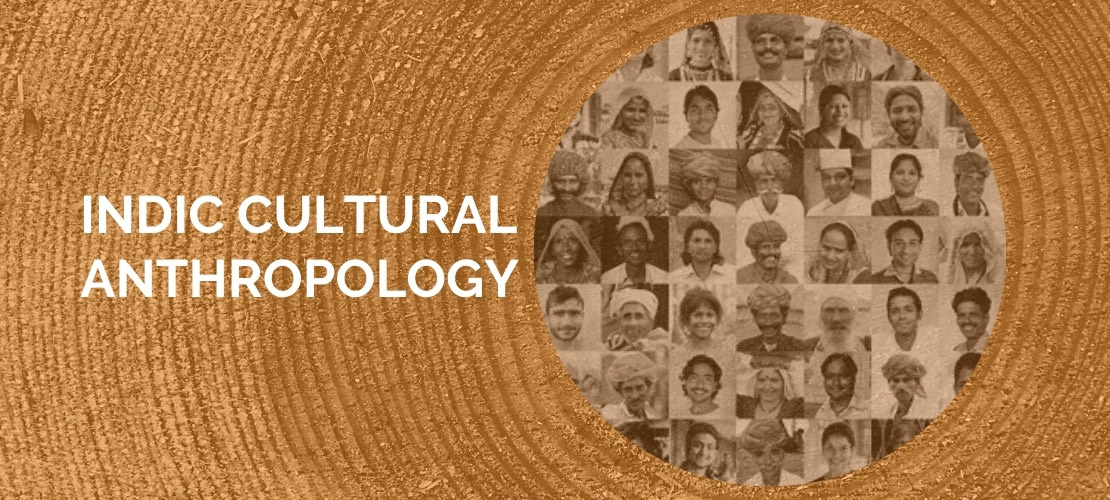
Indic Cultural Anthropology
Cultural anthropology helps to articulate and comprehend the insider traditional understanding of any culture.
If you are a learner seeking to acquire a fresh perspective towards world cultures through the understanding of the cultural anthropological content in the ancient Indian knowledge systems, this is the course for you.
If you are a student of Cultural Anthropology of Indian society and culture, unmindful of the lacunae caused by the absence of an insider’s understanding in the contemporary curriculum and study material, this is the course for you to plug those gaps.
Introduction
Cultural Anthropology, like few contemporary Social Science disciplines like Linguistics, has been misunderstood by some Indophiles who perceive that it looks down upon Hinduism as a primitive and superstitious culture. Contrary to this belief, cultural anthropological conceptual tools can prove beneficial in articulating an insider understanding of Hinduism.
Many students of Cultural Anthropology are unmindful of how the absence of an insider’s perspective in the contemporary curriculum and study material creates lacunae lacunae in understanding . This course intends to address the same.
Expected Outcomes
- Introduction to preliminary concepts of Cultural Anthropology from contemporary and Vedic perspectives
- Distinct methodologies and approaches in contemporary and Vedic Cultural Anthropology while dealing with same aspects of human society and culture
- Foundation required, within the globally accepted cultural anthropolgical norms, for a cultural anthropological research into the Hindu society and culture from a tradition Insider’s perspective
- Achievements of ancient Indian knowledge systems in the area of Cultural Anthropology
- Aspects of Hindu culture such as pujas, shodasa samskaras (life cycle rituals), classical , folk and tribal life styles music, dance, art, sculpture and architecture – from a Cultural Anthropological perspective
Syllabus
- Introduction to contemporary Cultural Anthropology, historical beginnings and contemporary situation ; eurocentrism to cultural relativism
- Vedic culture as an indigenous culture with distinction Vedic knowledge systems resulting from auto-anthropology and anthropologically useful content In other Vedic knowledge Systems
- Contemporary and Vedic approaches to human specifics such as language, ‘religion’, art , culture, society, marriage, family and more
- Traditional narrative types and other oral traditions from contemporary and Vedic perspectives, folk culture studies and other comparative cultural studies
- Intercultural interface, conflict, syncretism, amalgamation, folk-classical and other inter-strand relationships in Hindu culture
- Puranas, Agamas , Temples, Pujas and Utsavas – a contemporary anthropological and Vedic anthropological understanding
- Life cycle rituals or rites of passage, family, marriage and other institutions – contemporary anthropological perspectives and Vedic perspectives
- Art, theories of various art forms, aesthetics of nature and arts – contemporary and Vedic perspectives
- Varna – tradition Insider’s perspectives
- Indian village studies, village administration and traditional dispute settlement systems
- Indigenous medical, agricultural and other knowledge systems and technology
- Environmental awareness, eco-friendly approaches in Vedic, folk and tribal knowledge systems and technology

